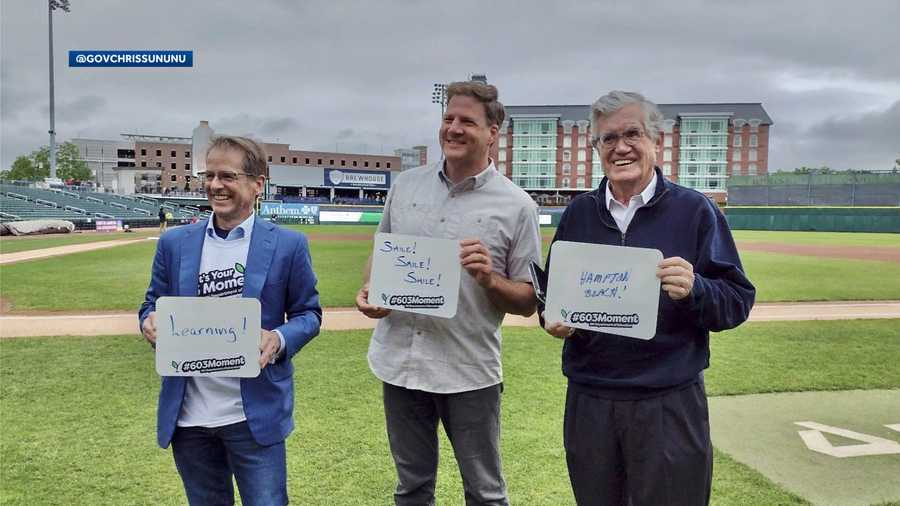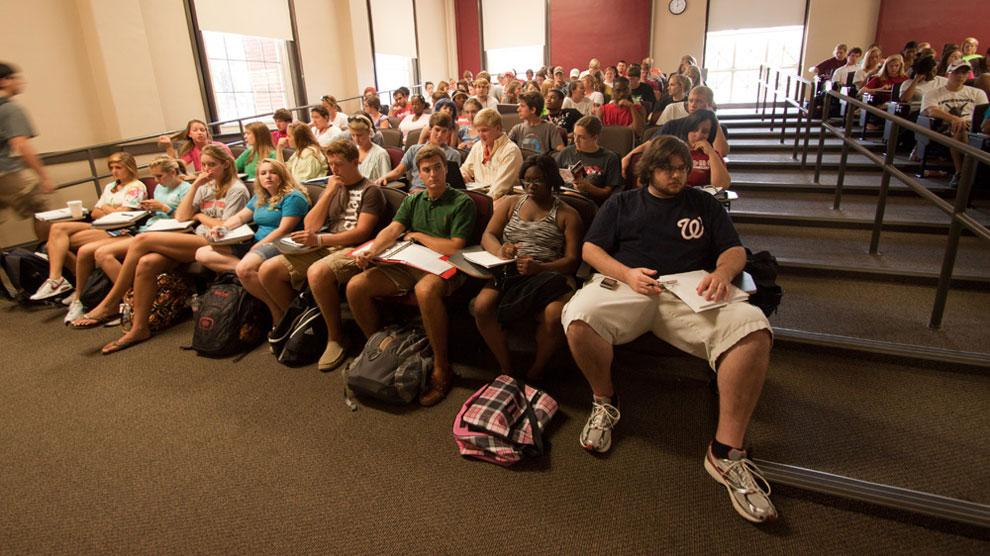When folks, particularly reformy folks, start talking about high quality instructional materials, I reflexively bristle. Part of it is that HQIM means, for some folks, materials that are aligned with the Common Core (either by name or under the various alias it has adopted). I also associate the term with curriculum-in-a-box, the kind of program that salespeople tout as teacher-proof, just as long as the school content delivery units present the program "with fidelity" aka "like mindless robots whose compliance is required and whose professional judgment is forbidden."
But the truth is, I need to take a deep breath and return my hackles to their seated unraised position, because there is a conversation about quality materials worth having, albeit a more nuanced and complicated one than the one we're inclined to have (also, I'm pretty sure that "a more nuanced and complicated conversation than the one we're inclined to have" covers a huge number of education issues).
Because I know better.
The best instructional materials I ever had (not made by me) was a literature series by MacMillan-Scribner. A solid selection of literature, and a really great set of both questions for the selection and materials to create a unit test. The whole package was about 80% aligned with what I wanted to accomplish in the class. It saved me untold hours.
On the other hand, in 39 years, I never saw a grammar/usage/writing text that was worth the paper it was printed on. Most were simply dreadful, with explanations that were unclear and exercises that were too brief and often poorly focused. I depended on my own created materials for about 90% of my teaching in those areas.
On the other other hand, there was my mentee who started her career depending heavily on Google as her teaching assistant, and not in a good way. We had too many conversation like this:
"I found a worksheet about this book/standard/lesson on line"
"Great. Why are you using this particular worksheet? How does it fit in your unit objectives?"
"It's about this book/standard/lesson."
There's still a problem with chirpy articles like this one (from EdReports, whose whole raison d'etre is certifying instructional materials as 100% common core fresh) that presume that if teachers just understood HQIM better, they'd realize that HQIM would make everything awesome. This is not true, either.
And of course the entire conversation is muddied up by the term High Quality Instructional Material, which means whatever you think it means. So let me tell you what I think a piece of high quality instructional material looks like.
Accurate and Appropriate Content
I shouldn't need to bring this up, but every teacher has been there--you're working your way through new teaching materials and realize that the writers of the book got something wrong. Well, that's if you're lucky and vigilant; otherwise, the mistake will be brought to your attention by a student.
I know I may not be the person to fly the flag, what with my years of cranking out typo-riddled posts on this blog. But textbooks are expensive, and textbook companies are well-paid, so I don't want to open up a book and find a noun called a verb or Stephen Crane called a Romantic writer. I want materials created by somebody who knows the content and knows it well and not someone who is just plugging in stuff for a template (or--and I don't know how much this is an issue in other content areas, but in English it's a pain--is apparently working from an open copy of someone else's textbook and trying to copy it without actually violating copyright laws).
Nor do I want a textbook to include baloney like calling enslaved people immigrants or the USSR a Communist paradise or otherwise attempting to put a particular gloss on the content.
And since time saving is one of the appeals of HQIM, the prospect of sifting through a haystack like Teachers Pay Teachers for some needle of high quality material seems like a problem. It may be my old-fartiness shining through, but TPT seems like an invitation to Just Grab Something without taking the time to find something good (and in that same time, could I not design something of my own).
Also--material that is grade/age appropriate. This is a hard one, given the wide range of end users. That's just one reason we need--
Flexibility
EdReports likes to say that the think teachers should implement materials with "integrity" rather than "fidelity." I agree at least half with this--no materials that demand to be implemented with fidelity are high quality, because what that actually means is that someone, somewhere, has decided that they know the best way to teach material to students that they haven't even met. The teacher is in the classroom; the book's authors are not. Note: anything with a script is not HQIM.
HQIM are adaptable, so that the teacher can use them to construct a lesson that's best for the class they're facing. EdReports actually cites some research to back this up, suggesting that “'adaptation with guardrails' can actually help strengthen impacts on student outcomes beyond what is possible through program fidelity alone. In other words, learn the materials by sticking close to what the manufacturer suggests, then as you become familiar, adapt to suit.
Implicit in all this is that HQIM provide more materials than you can actually use--because you're not going to use all of it. You're going to use the pieces that work best for you and your students, including making adjustment for achievement levels within the class.
Actual Support
Here's what teachers are used to getting: a PD session from some company rep who spent a couple of years in the classroom, then checked out for this sweeter gig. This person will suggest that you don't know what you're doing and will blow off any practical questions you want to ask.
Here's what teachers need, particularly with materials that are computer based: A person they can call who can actually answer questions and provide support other than reading from the same manual that the teacher already looked at on line.
The Why
There is nothing more critical in a classroom than the why. The teacher has to know why they're covering the material, and it has to be a good reason and not "because someone told me to" or "it will be on the Big Standardized Test" or any of the other reasons that students hear, correctly, as "Blah blah blah no good reason."
For HQIM, this becomes another aspect of flexibility. Instructional Materials cannot supply the why (pro tip: "Because it's in the book" is not a useful why) for the teacher, but they can be clear about what sorts of why the particular materials address. When a teacher goes to the materials bank, they need be able to search beyond "something about Hamlet." They should be dipping into the library looking for "exploring the themes of Hamlet" or "reviewing character relations in Hamlet" or "examining the plot sequence in Hamlet" and the teacher should be able to look for these specifics without having to read through every single piece of material to figure out what it's about.
A well-done teachers' guide can even help develop the why of a unit by suggesting possible ideas to explore.
A bad set of materials hides its why. The worst grammar/usage text I ever had offered terrible grammar exercises, and it was only after I was several chapters in before I realized that the exercises were all organized exceptions to or quirks in the grammar concepts, trying to test the students' grasp of the concepts with examples from the fringes--without ever giving students a chance to practice the basic core of the idea.
Teacher enhancing, not teacher proof
No brand of instructional material can make a great teacher out of a lousy one, but administrative demands to follow a program with fidelity can make a mediocre teacher out of a good one (or a former teacher out of a good one).
I know there are sales reps out there whose pitch, implicit or explicit, is "Buy our stuff and you will have a complete curriculum and a whole staff of teachers on the same page." And I have worked for a couple of administrators who totally bought that pitch.
There are two problems. First of all, good teachers will be hamstrung, and lousy teachers will still be lousy (how to unlousify them is a whole other post). HQIM should save teachers time and trouble, not micro-managing them.
Second of all, imagine this--the company goes out of business and all of their materials suddenly vanish. If leaders in your district are suddenly saying, "Oh no! Now we have no curriculum!" then you never did, because teaching materials are not a curriculum. They should be used to implement your curriculum and enhance your teachers' work. It's like putting seatbelts in your school buses, strapping all your students in, and announcing that your focus is safety as you send a driverless bus careening down the road.
Create your curriculum. Then select your books etc based on how well they fit your district's plan. Which means--yes--that some high quality instructional materials may conceivably be an excellent fit for one district and not so much for another. (Which takes us back to the old "Wait a minute--we can't have a whole bunch of different curricula higgledy piggledy all over the place," and that really is a post for another day).






